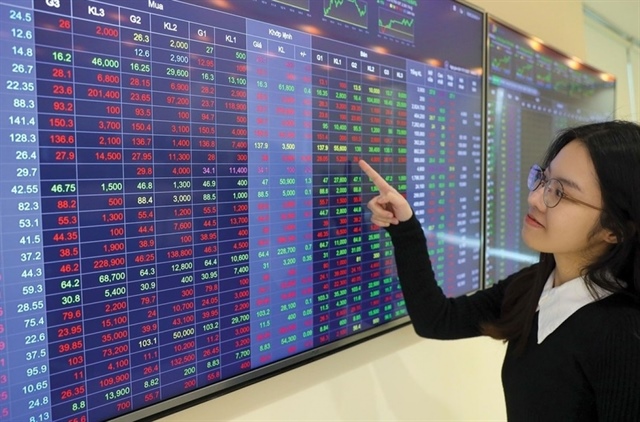Will the Vietnamese stock market continue to lure foreign investors?
Will the Vietnamese stock market continue to lure foreign investors?
The rising Vietnamese stock market is now attractive in foreign investors’ eyes amid the turmoil of the Chinese and European markets. But this does not mean that a price boom will occur, experts say.

Observers believe investors will instead flock to Vietnam, one of the rare markets worldwide that has seen stock indexes on the rise.
Vietnam’s recent passage of Decree No 60 will help.
The new decree, due to take effect on September 1, will remove limits on foreign ownership in listed companies.
Current regulations cap foreign stakes in public companies at 49 percent.
Under the new decree, a foreign stake can be lifted to 100 percent for most sectors, and firms will also be allowed to propose their own limits.
However, the limit on foreign stakes at banks will be retained at the existing level of 30 percent.
Dozens of listed companies in domestic bourses had run out of room for foreign investors, so changes in Decree 60 will allow those foreigners to become strategic shareholders.
According to Thanh Nien newspaper, Eric Mustin from WallachBeth Capital said on CNBC that foreign investors have asked him about Vietnamese stocks.
The expert thinks that Vietnam is like China one year ago and that Vietnamese policymakers are trying to create an attractive emerging market to attract more foreign capital.
Erin Gibbs from S&P Capital IQ said that Vietnam was one of the strongest frontier countries, and it could easily reach emerging market status.
However, experts have warned against the extreme optimism of many Vietnamese investors who think stock prices will skyrocket and bring high profits to investors as they did eight years ago.
Dr. Phan Minh Ngoc, a renowned analyst, in an article in a local newspaper, noted that this would not be the “strong medicine” to create a “price explosion” as investors expect.
It is clear that there will be new foreign capital flow to Vietnam, but how much will depend on many factors.
An analyst noted that Decree 60 was good news for stocks which have foreign ownership ratios near the ceiling level under previous regulations. However, the majority of other stocks do not have this level, and are not really attractive to foreign investors.
In principle, the price increases of blue-chips will lead to increases of prices of other stocks.
However, he said, the increases will make stocks more expensive and therefore, unattractive.


























